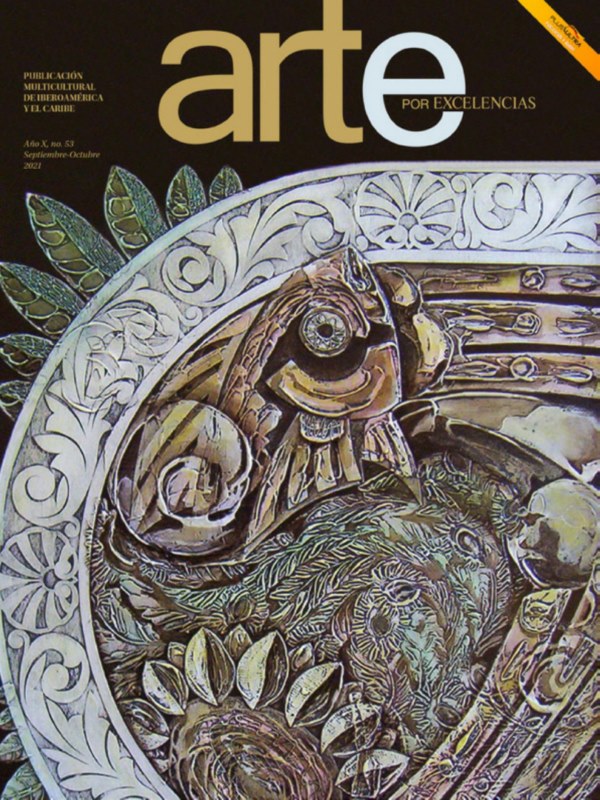The stanza is like a song, which was born when it was rumored that the Low-Budget Film Festival was disputed by the ultramarine town of Regla and the Perla del Sur of Cienfuegos. And we heard it for the first time when it was growing from neighborhood to neighborhood, jumping from mouth of mouth, through the crowd situated with torches along the sidewalks...
First figures and dazzled producers went down the street, new directors and renowned specialists, students of the school of San Antonio de los Baños and High Art, party officials and government at all levels, and we barely walking behind Humberto who was euphowric and happy, escorted by friends who came so fast, as the band opened the way, playing the same music of a Fellini film, like clear allegory of a bigger dream.
When using my few regional powers I wanted to summon four bands for the parade, under the certain guidance of Manuel de Jesus Leyva, better known as Coco, who directed even backwards when he wanted to praise a beautiful lady-, then he frowned: he would break the magic of that gigantic set, as when after his loudly speech in the center of that vortex, invited to sing to thousands of people gathered there, around the statue of the country: / Viva Gibara /, and the chorus is repeated with a guiro, maraca and bongo- / Viva Gibara /, /la Villa Blanca de los Cangrejos/, /la perla hermosa de nuestro Oriente/,-and then ones gathered were almost with tears on their eyes /la soberana/ la soberana de los ensueños/.
Now is running around on the screen the gilded old camera, with the familiar opening music of the International Low-Budget Film Festival, and the respectable audience starts clapping to come up to the high stage the divas always willing to controversy: Adela Legra, the third Lucia and Deisy Granados, always indomitable. Followed by the Italian-Cuban Vando Martinelli, without a cane in the perseverance that the competition must not die; and the stubborn critic Luciano Castillo, who we owe the defense of the memory of Cuban cinema; and Renecito de la Cruz, already laughing of himself; and the most simple and lucid young director I know, Carlos Barba; even the vice president of ICAIC, Samada, all with the belief that the reunion could not be postponed another year.
This is the reason why we are attending the premiere of the film titled "Humberto". Two hours of testimonies elapse that attest to his mark, we need this to be known by the ones coming, how human quality, the patriotic commitment and his unparalleled genius can cohabit. Because in that face of Solas, capable of a sweet smile on his folds, nestled the conviction to democratize the film making and unleash from the Island a global movement of appropriation of cinema before it ceases to be.
Maybe that's why the people of the ring, bucket and trowel did not understand the reason why, among the little he asked for, was going to live in the visiting house of Shipyard for about ten days; and he asked to make some round columns to restore the step corridor in front of the cinema, even though it had no roof because of the old issue of not being included in the economic plan. Because he could not convoke an international festival in Cuba having a square facade, of cutting socialist realism.
And this were the delays he did not forgive, because to found there is no time to waste, even if it was during the terrible crisis of the Special Period and there was not cement or bricks, and he never knew where resources were diverted to what the popular wisdom called "the columns of Hercules", and which fact was never criticized despite the omens and the terrible situation there with homelessness.
Humberto was absolutely right then: we had tricked him with promising the impossible. We left it in Vitico’s hands, alias Victor Rodriguez, the most joker funny Negro he knew, friend of all friends, from San German City, and director of the Provincial Film Center. They had met when they were looking for locations for "Miel para Oshum" under instructions of supporting him in all: Vitico was surprised by the coffee maker of the Master, always inside the briefcase. Or the match-box between his fingers with a cinematographic "tempo". And how he enjoyed a good pottage while conspiring the idea of ??a distinct and dissimilar festival, in Cienfuegos or Santiago de Cuba, even better in Gibara, where he filmed the third story of Lucia and left for the posterity the imposing Silla Gibara which has always attracted him.
Our Negro with a gold tooth remained stoic in the proposal. In addition, it was one of our most sacred agreements to continue attracting creators to Holguin to help us found a region of international festivals and events. After the final agreement at a dinner in Cosme Proenza’s house, his primary mission was to keep the Master busy with his action and word, as long as he agreed to carry out the Festival. But the day came when it was impossible to continue giving explanations of why the columns were not raise...
Solas was visiting Gibara and he was truly angry, and the only possible occurrence was to invite him to dinner at an Italian restaurant of the largest hotel in Cuba, and thus somehow appeal to the moment he went to a theater school in Europe. I suspect that the idea I proposed to the provincial authorities was also made by the director of cinema, because Master associated Vitico with the delay of the project, which he really was not responsible for, but he did not want to see him anymore. (He did not laugh with even the best stories: that work of Vitico in the office of Secretary of the Party in Mayari, when he was told that the only truck that came with banana should be first seen by all the people, before reaching the square, for a problem of principles).
The Sol-Meliá hotel chain had just brought the original gondola of Venice, in excellent condition, in a container that traveled across the Atlantic, to the Hotel Playa Pesquero, the largest in Cuba. And we agreed to put a table as close as possible to the beautiful vessel, and an Italian chef to recommend the best Italian wine, and a menu that had the typical Venetian food, the beef carpaccio,-an exquisite dish of raw ground meat, oil olive and black pepper-all a true artillery meal for when the first party secretary and the president of the government arrived, in an alleged check investment already in progress, could ratify the commitment to complete the work in the cinema before the first festival starts.
It was one of the few happy days Humberto had in the area ... We won time so he could continue brewing the boldness of the Budget Film. Years when, as if by magic, he saw ??his dream came true when an Iranian filmmaker came up directly from Tehran, knowing only his native language and warned of being the representative of Islam in the event, who held high temperatures for several days in suit and tie. He could not understand the signs of the organizers, until he met a humble Gibara citizen that, suddenly, knew how to explain him the significance of cultural differences –he weared shorts and sandals for the several months his documentary on the presence of Che Guevara in the manufacture of textiles last, until the happy marriage- besides geting the debut award in the subsequent event.
Or the Japanese who attended the projection room with her suitcase of belongings because she was told about the high level of crime, and some days later she did not stop laughing. Or the newcomer Egyptian from Cairo because she readed the news on the Internet website. When Humberto told us how the juries of Golden Globe Awards were coming to lunch to the newly built ranch on the hill, I, naive, thought he was delusional, until I saw them with my own eyes, after two or three years, enjoying the seafood, and wondering why we were talking about poverty at the festival.
This man was so loyal, that he felt the need to return the generosity he received during his first award-winning film in the sixties, where he left in celluloid the image of streets of the same town where he would come back, over thirty years later, to shoot "Miel para Oshum" and proclaim there his manifesto on the Low-Budget Film.
Without being a specialist of new technologies, he summoned them to make it available to new generations, and continue doing works, perhaps his greatest revenge on the decade in which he could not shoot, when he had to be above the detriment of the eighties, when he left us the memorial of "Cecilia" and, inexplicably, was seen as the most wasteful filmmaker in the history of ICAIC.
For all this, no one understands the impossibility of delivering a house to a living museum for his work, when it is known that it was his greatest desire in life, his family and the locals. We will always be in time to save such debt in Gibara and Cuba, so Humberto Solas endures in us, as this film by Carlos Barba teaches us, which must be seen in schools, and in all places where the fire of the pride in being Cuban is pockered.
The man emerging despite his circumstances, being from the homophobic gray five or about the miserable bureaucrat on call, in perennial challenge to water everywhere. The Cuban feeling is in Paris, Havana, Moscow or Karlovy Vary, in impeccable white and all the senses opened to the future of its people.
More in Gibara that reborns, sovereign, for our dreams.
Related Publications

How Harumi Yamaguchi invented the modern woman in Japan
March 16, 2022
Giovanni Duarte and an orchestra capable of everything
August 26, 2020











